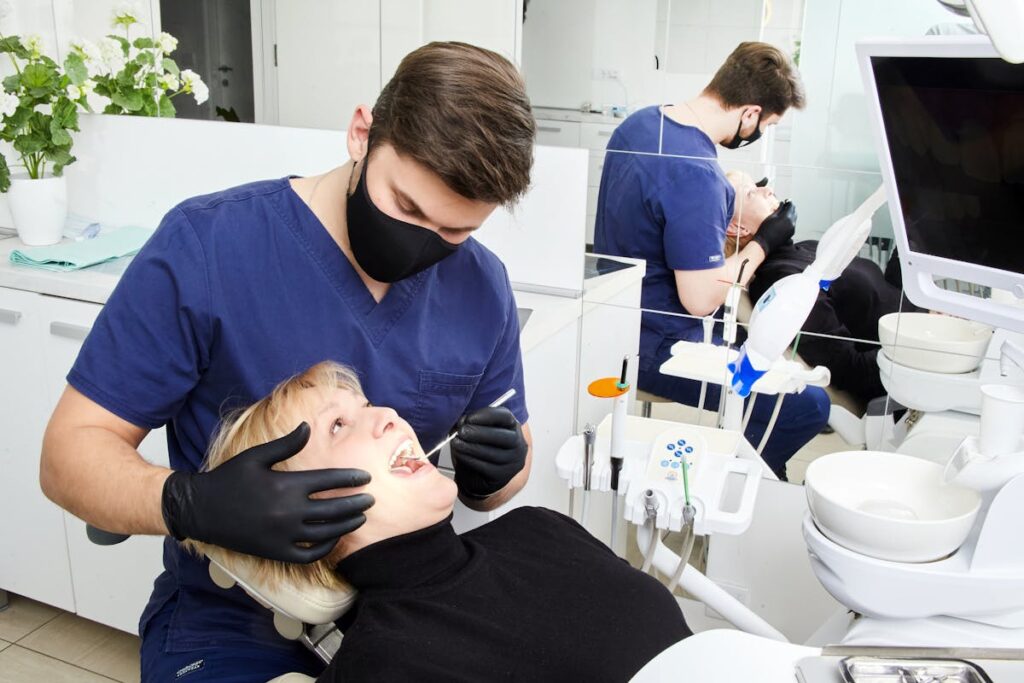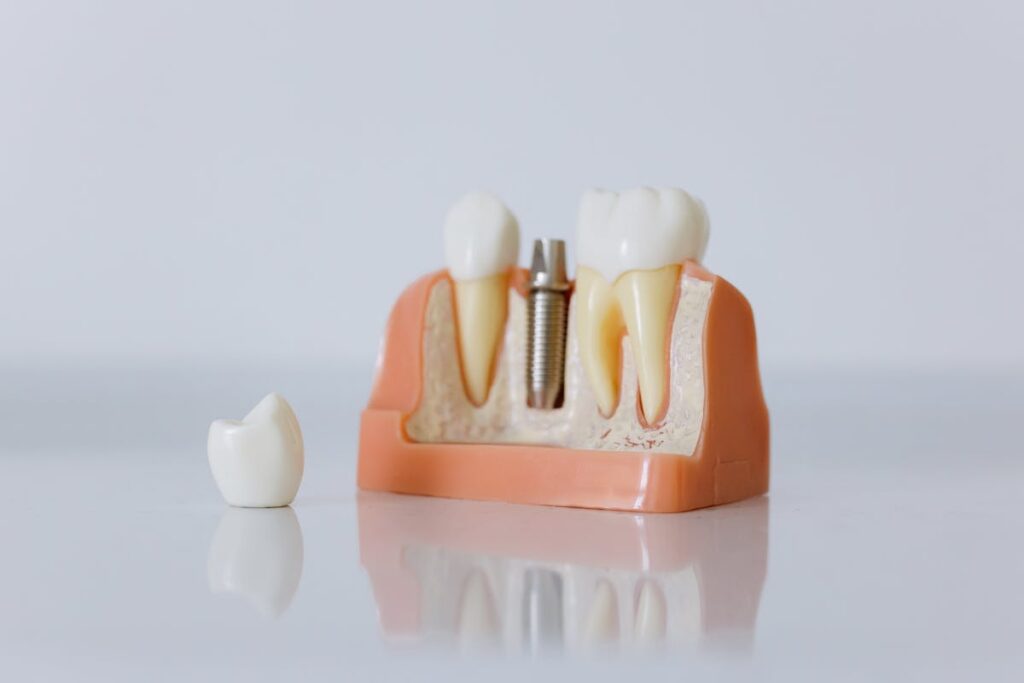The timeline for recovery following a root canal procedure can be highly variable, typically ranging from a few days to two weeks. This duration is influenced by numerous factors, including the extent of the original infection, the complexity of the operation, and the patient’s overall health status. While many patients report considerable improvement within the first few days, complete healing may necessitate a more extended period. As we explore this topic further, we will examine the importance of pain management, dietary considerations, and oral hygiene in promoting effective recovery post-root canal procedure.
Understanding the Root Canal Procedure
In the domain of dental care, a root canal is a common procedure often utilized to treat severe tooth decay or infection. Despite its reputation for being painful, it’s significant that one of the most important root canal benefits is pain alleviation. The procedure involves the removal of the inflamed or infected pulp, cleaning and disinfecting the inside of the tooth, and finally filling and sealing it. This eradicates pain and prevents further infection, preserving the natural tooth in the process.
Regrettably, a myriad of root canal myths surround this procedure, often causing undue fear and anxiety. Contrary to popular belief, root canals are not excessively painful. With modern technology and anesthetics, most patients report feeling no more discomfort than they would during a filling. Another widespread myth is that a root canal kills the tooth. In reality, the procedure merely removes the infected pulp, leaving the majority of the tooth intact.
Understanding the root canal procedure and debunking these myths are crucial steps towards informed dental health decisions. Despite the misconceptions, the benefits of a root canal procedure, including pain relief and tooth preservation, are undeniable.
Factors Influencing Recovery Time
Recovery time following a root canal procedure is not a one-size-fits-all concept, as it can vary greatly from one patient to another. Several factors can influence the duration and ease of the recovery process.
One such factor is the level of infection present in the tooth pre-procedure. A more severe infection may necessitate a longer healing process, as it takes the body more time to eliminate the infection and rebuild healthy tissue. Additionally, the complexity of the root canal procedure itself can affect the recovery period. For instance, a root canal performed on an anterior (front) tooth, which generally has a single root, will likely have a shorter recovery period compared to a molar which usually has multiple roots and may require more extensive work.
The patient’s overall health and ability to heal also plays a critical role. Individuals with strong immune systems can often recover more quickly. Pain management strategies, such as using prescribed or over-the-counter medications, can also considerably impact the comfort and duration of the recovery phase.
Typical Recovery Timeframe After a Root Canal
Moving on from the influential factors, it is important to understand what to expect regarding a typical recovery timeframe following a root canal procedure. Generally, the majority of patients report feeling considerably better just a few days post-operation. However, complete healing can take up to two weeks.
These timelines can fluctuate based on individual health profiles and the complexity of the root canal. However, effective pain management strategies can greatly improve one’s comfort and expedite recovery. Over-the-counter medications, as well as prescribed analgesics, can help manage post-operative discomfort. In conjunction, patients should avoid hard and chewy foods to prevent exacerbating any residual sensitivity in the treated tooth.
Dietary adjustments during this period do not only guarantee comfort but also protect the temporary filling typically placed after the procedure. Consuming softer foods and maintaining hydration promotes healing and minimizes potential complications.

Post-Procedure Care Instructions
What measures must one take to guarantee a smooth recovery after a root canal procedure? The answer lies primarily in effective pain management and adherence to dietary recommendations.
Upon completion of the root canal procedure, your dentist will provide specific instructions for post-procedure care. Effective pain management is essential. Typically, over-the-counter pain medications like ibuprofen or acetaminophen are recommended to manage discomfort. It is important to follow the prescribed dosage and schedule.
Dietary recommendations also play an essential role in post-procedure care. Initially, consuming soft foods and liquids will help prevent irritation of the treated area. Examples of such foods include yogurt, pudding, and soup. Avoid chewing on the side of the mouth where the procedure was performed until the area is fully healed. Gradually reintroduce normal food as your comfort allows.
Additionally, maintaining oral hygiene is important. Regular brushing and flossing should continue, but with gentle care around the treated area.
Follow-up appointments with your dentist are important to guarantee the healing process is progressing as expected. Adherence to these post-procedure care instructions will greatly enhance your recovery from a root canal.
Common Symptoms During Recovery
While adherence to post-procedure care instructions greatly enhances the likelihood of a smooth recovery, the body’s response to the treatment can vary. Within the course of recovery from a root canal, there are common symptoms that patients often experience.
- Mild to moderate pain: This is expected after the anesthesia wears off, and is typically managed with over-the-counter pain relievers or prescribed medication. Pain management is a vital aspect of the recovery process.
- Swelling and redness: It is not uncommon for the treated area to exhibit swelling or redness. Cold compresses and anti-inflammatory medications aid in swelling reduction.
- Increased sensitivity: The tooth may become more sensitive to hot or cold temperatures, and sometimes to pressure. Using a toothpaste for sensitive teeth can alleviate this.
- Temporary alteration in bite: The treated tooth may feel different or higher in your bite. This usually resolves as the inflammation subsides.
When to Contact Your Dentist
Your dentist’s guidance remains invaluable in the recovery journey following a root canal procedure. Their expert advice and recommended pain management techniques are fundamental to ensuring a smooth and hassle-free recovery. This is why it is crucial to maintain open communication lines with your dental professional, especially in the immediate days and weeks following the procedure.
You should never hesitate to reach out to your dentist in instances where the pain surpasses the normal threshold or persists for several days despite medication. This could indicate an infection or other complications that need immediate attention. Similarly, if you notice swelling that does not subside, uncontrolled bleeding, or an allergic reaction to prescribed medication, you should contact your dentist immediately.
Your dentist will likely set a dental follow-up appointment to monitor recovery progress. During this visit, any concerns you have can be addressed, and adjustments to your pain management plan can be made if necessary. However, if you experience the aforementioned issues before your scheduled follow-up, do not wait. Prompt communication with your dentist can prevent potential complications, facilitating a more comfortable and successful recovery.
Tips for a Smooth Recovery
Maintaining open lines of communication with your dentist is just one aspect of the recovery process. It is equally important to adhere to the post-operative instructions given by the dentist. This includes pain management strategies and dietary recommendations, which can greatly facilitate recovery and enhance comfort levels.
Here are some important tips to guarantee a smooth recovery:
- Pain management: Prescription or over-the-counter medications may be recommended by your dentist to manage discomfort. It is essential to follow the dosage instructions to avoid potential side effects.
- Dietary recommendations: A diet of soft, easy-to-chew foods is usually recommended immediately following the procedure. Gradually reintroduce harder foods as your mouth heals.
- Oral hygiene: Regular brushing and flossing should be continued, but be gentle around the treated area to avoid irritation.
- Rest and hydration: Adequate rest and staying hydrated can not only alleviate discomfort but also promote faster healing.
Each patient’s recovery time may vary depending on the complexity of the root canal treatment and individual healing capacities. It is, as a result, essential to follow your dentist’s guidelines for a favorable recovery outcome.
Frequently Asked Questions
Can I Go Back to Work Immediately After a Root Canal?
Typically, return to work post procedure is possible. However, it depends on individual pain tolerance and the extent of the procedure. Adequate pain management and post procedure care are essential to guarantee a smooth recovery.
Will a Root Canal Affect My Sense of Taste?
A root canal procedure generally does not affect your taste perception. However, temporary changes may be experienced due to local anesthesia or dental sensitivity post-procedure, but these typically resolve as the healing process progresses.
Is It Normal to Experience a Change in Tooth Color After a Root Canal?
Yes, it is normal to experience a change in tooth color after a root canal. The primary causes of tooth discoloration, in this case, are the root canal aftermath and remnants of necrotic pulp tissue.
What Are the Alternatives to Getting a Root Canal Procedure?
Alternatives to a root canal procedure include tooth extraction and replacement with dental implants or bridges. However, these options require more extensive procedures and may not preserve the natural tooth structure.
Will I Need Additional Dental Procedures After a Root Canal?
Following a root canal, additional dental procedures may be necessary depending on post-treatment care and potential complications. Crowns are often required to protect the tooth, while further treatment may be needed if infection reoccurs.
